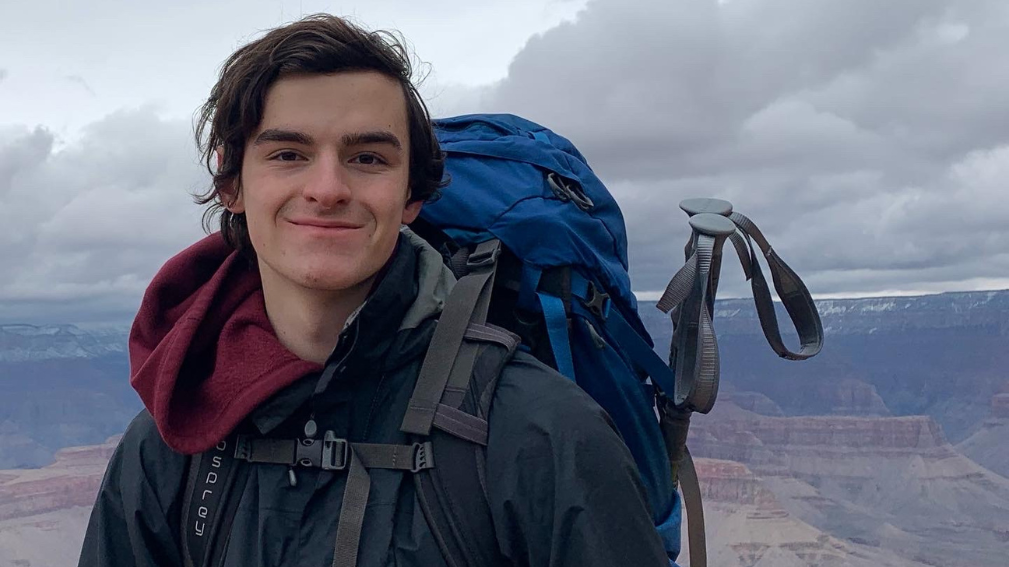Undergraduate Research Assistant Develops New Passion for Antibiotic Resistance

As a student researcher, Andrew Watson is supporting the research of Northwestern Buffett’s Antibiotic Resistance Global Working Group.
Originally from New Hampshire, Andrew Watson is a junior studying Biology and Chemistry at Northwestern University. As an undergraduate research assistant, Watson is supporting the research work of the Antibiotic Resistance Global Working Group established through a unique Idea Incubation Process at the Northwestern Roberta Buffett Institute for Global Affairs. During the 2022–2023 academic year, Watson was one of 28 undergraduate students serving as research assistants for Northwestern Buffett’s Global Working Groups, which catalyze interdisciplinary and cross-department research collaborations addressing complex global challenges. He is now continuing his research assistantship for a second year.
Northwestern Buffett’s Antibiotic Resistance Global Working Group is co-led by Professors Mehreen Arshad, Assistant Professor of Pediatrics at the Northwestern Feinberg School, and Erica Hartmann, Associate Professor of Civil and Environmental Engineering at the Northwestern McCormick School of Engineering. By examining the spread of antimicrobial resistance across the world, they coordinate research and partnerships to stave off what has emerged as the third leading cause of death globally.
As he enters his second year as a research assistant, Watson has worked on various projects for the group, including research related to bacterial transmission and how different surfaces interact with common disinfectants. He talks about what lab experiments he has supported, how the interdisciplinary nature of this Global Working Group has developed his interests in bioinformatics and how his work has set him on a new trajectory after graduation—on the track toward medical school.
What first brought you to this kind of research work?
I had actually started working at this lab before I decided to do medicine. I was in McCormick studying engineering for a year, and that's when I started focusing on more medical problems. When my mind was always thinking about it and always reading literature focused on it, it put me in a mindset that, ‘This is something that's really cool that I want to pursue.’
Working with all these systems and connecting different bioinformatics tools in the general workflow made me enjoy doing it more. The more you know, the more you can do with bioinformatics, and you can get really into the weeds. It's motivating in itself—both gaining confidence in what I want to do through being absorbed in it and also just wanting to learn more about it just from exposure to it.
What interests you about your work?
The interesting part for me is the intersection between computer science and biology and all the math that goes into it. It gets pretty technical, and I like getting into the nitty gritty of optimizing things so that they run faster and managing things so we get better productivity. With antibiotic resistance, especially in bacteria, it’s just really interesting what we can do with all these computational tools and that, somehow, we get insights about how the bacteria are working and spreading—just from using a lot of data and a lot of data processing.
What impact do you hope this research has on the world?
It needs to be done. A lot of the statistics and forecasts predict that, by 2050, these infections will outpace cancer for number of deaths worldwide. There are so many sides to this issue but, in the short term, the projects I’m working on are meant to inform physicians...they’re meant to inform positions about when and when not to use certain ubiquitous disinfectants. If insights come out of our project trying to predict resistance from usage, I’m hoping those insights will ultimately help save lives.
Expanding the scope of the projects is a benefit of working with the global group. Working with doctors from different parts of the world where they have different issues brings into question different problems than we otherwise would have in a lab just focusing on issues around us. It's more data for us to use and work with. It's also different kinds of data or problems that we wouldn't normally think about addressing. All of that comes together with a much bigger scope, and it gives us more to do as researchers than if it was just our lab and our samples alone.
Do you have any advice for students who want to become researchers?
Don’t be scared to take some risks, and don’t be scared to reach out to people. Research is a very broad world and there are so many different things you can be doing in it. It's just finding something you’re interested in.
